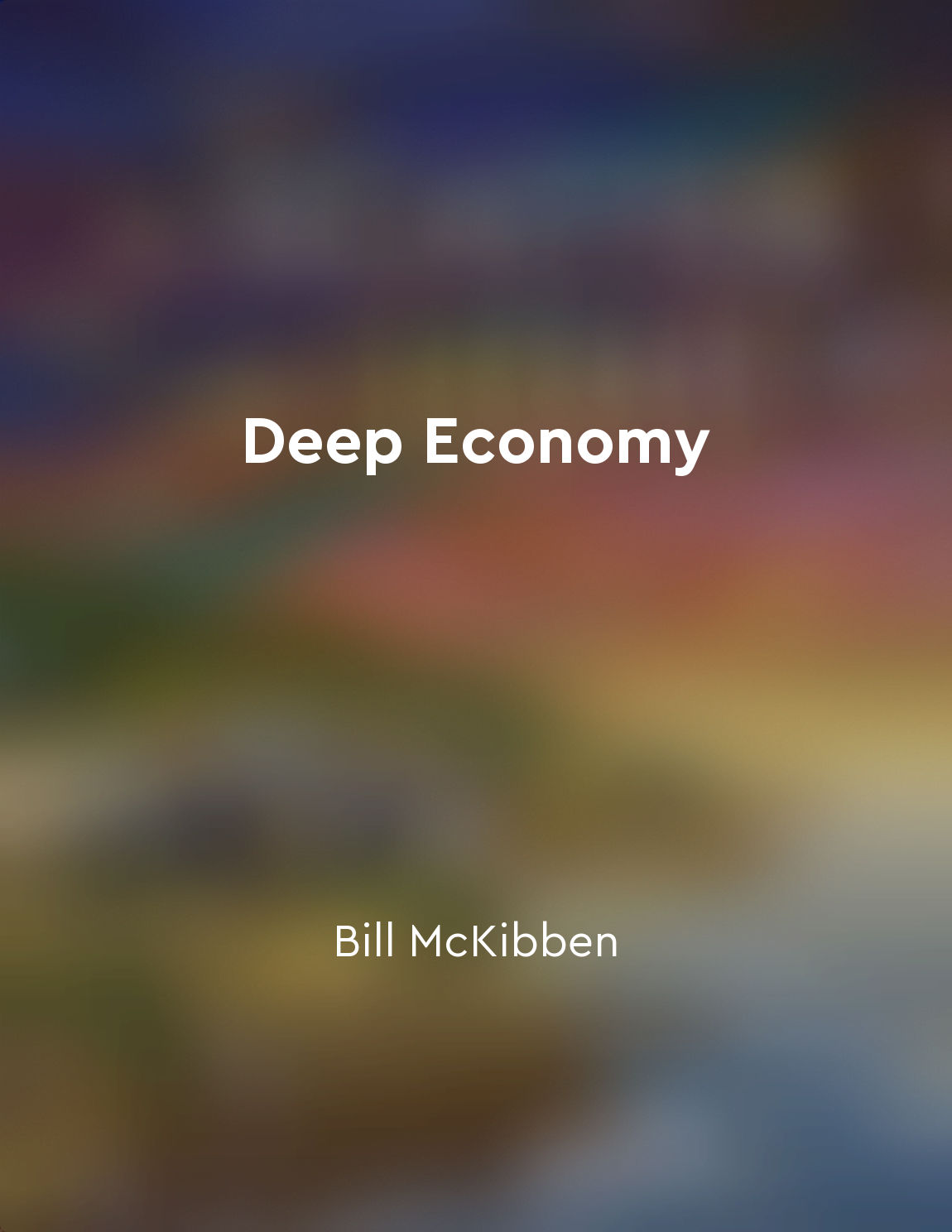Nature is the ultimate economy from "summary" of Deep Economy by Bill McKibben
From the intricate web of life in a forest ecosystem to the delicate balance of coral reefs in the ocean, nature operates on a system of efficiency and sustainability that surpasses any human economy. In nature, every organism plays a crucial role in maintaining the overall health of the ecosystem, with resources being used and recycled in a continuous cycle of growth and decay. This self-regulating system has been honed over millions of years of evolution, resulting in a level of complexity and efficiency that far exceeds anything humans have been able to create. When we look at the way nature functions, we can see that there is no waste - every component of the ecosystem is utilized in some way to support the whole. This contrasts sharply with our modern economy, which is characterized by rampant consumerism and waste. In the natural world, resources are used sparingly and efficiently, with organisms taking only what they need and giving back to the ecosystem in return. This ethos of sustainability and reciprocity is something that we can learn from and apply to our own economic systems.- We can start to shift our mindset away from endless growth and towards a more sustainable way of living. Instead of constantly striving for more, we can learn to live within our means and prioritize the health of the planet over short-term gains. This may require a fundamental rethinking of our economic systems and priorities, but the long-term benefits of living in harmony with nature far outweigh any short-term sacrifices we may have to make. Ultimately, by embracing the principles of nature as the ultimate economy, we can create a more resilient and sustainable future for ourselves and the planet as a whole.


